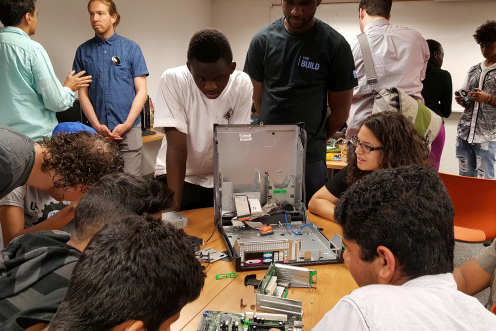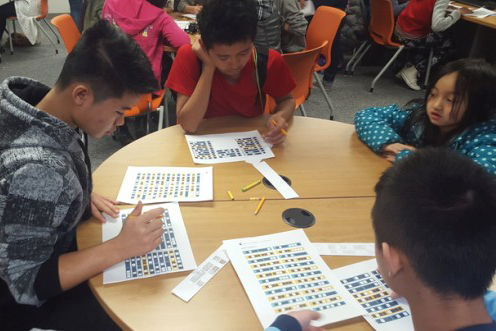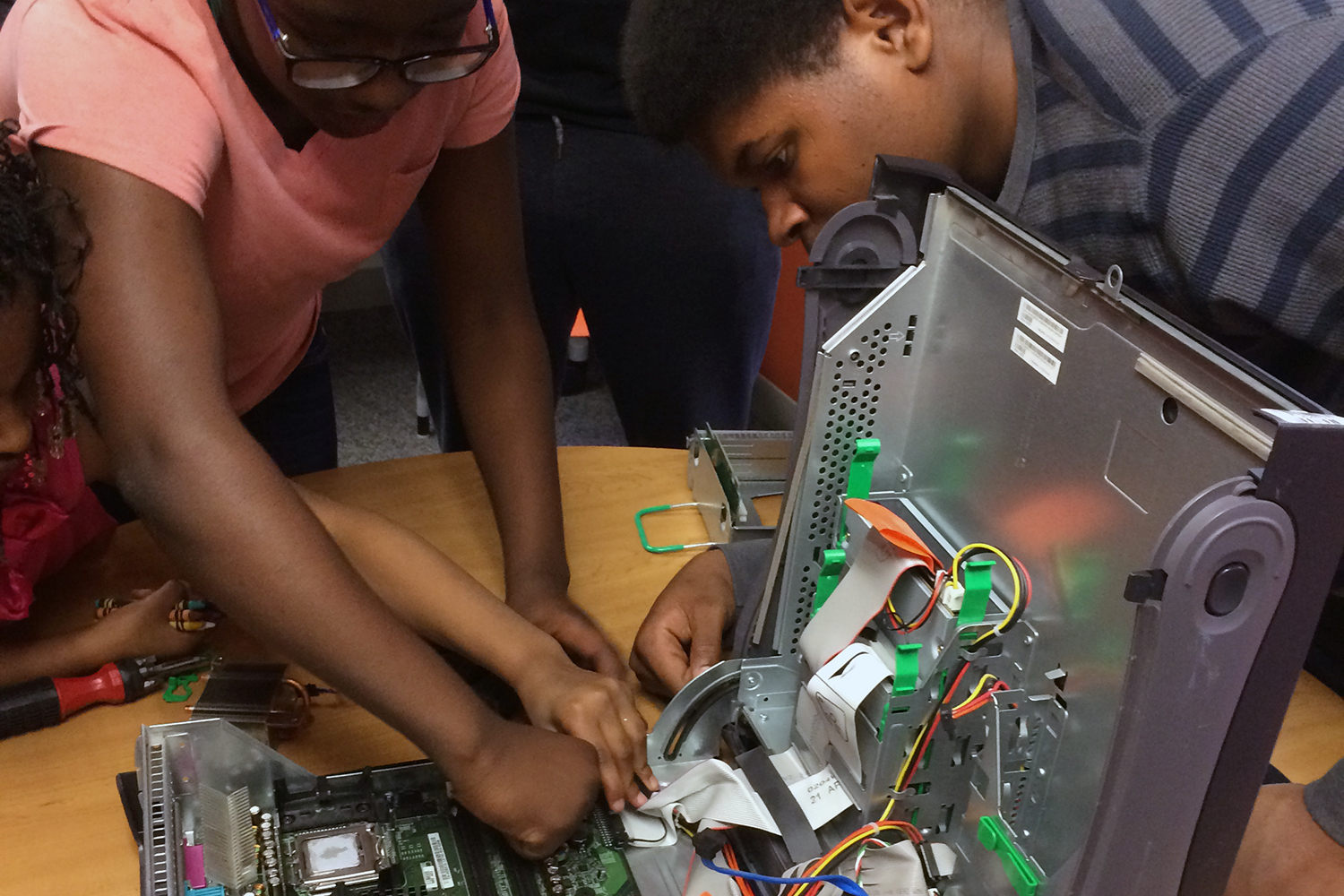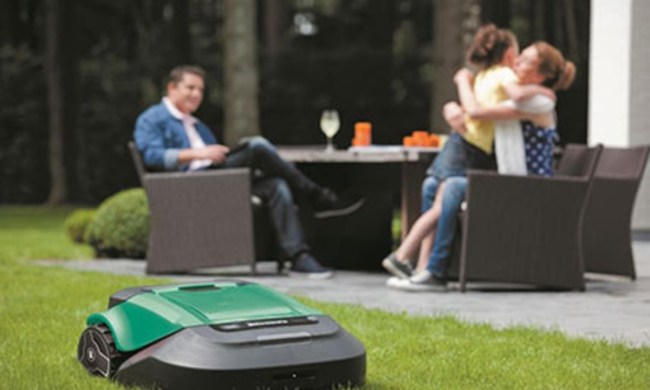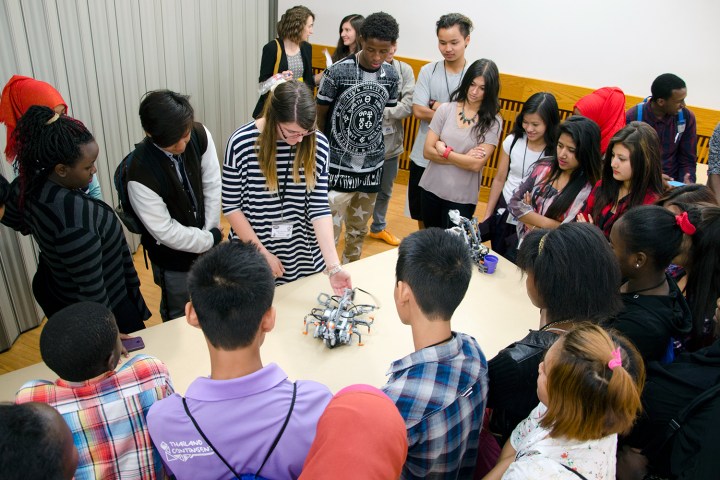
For starts, Cotopaxi is a benefit corporation. It “creates innovative outdoor products and experiences that fund sustainable poverty alleviation, move people to do good, and inspire adventure.” It does this by donating 2 percent of all revenue to “high-impact organizations that build sustainable solutions in collaboration with local communities.” It also selects the organizations themselves, does research, and quantifies the impact together with its partners.
“We hope this program will reduce the discomfort that families feel when faced with such an abundance of new technologies.”
This year, Cotopaxi is rolling out a new joint initiative in partnership with the International Rescue Committee (IRC) of Salt Lake City, and the Utah Open Source Foundation, that combines some of its previous initiatives and focuses on the immediate needs of their community.
Called the Global Good Project, it’s a multi-part program comprised of a home mentoring initiative called Tech Mentors, and a computer science education model called the Coding Project. The Global Good Project also engages with the Utah Open Source Foundation to support “open philanthropy,” which is a term they coined to define the process of engaging the open source community in the development of effective tech solutions for the social sector. Project SAFE, an Android app that helps those new to the United States feel safe and when needed connect with 911 Emergency Services, is the first project to come out.
The Coding Project is an existing program that helps train refugees with computer science skills while also preparing them for jobs that fit their new skill set. Meanwhile, Tech Mentors lays the foundation for the Coding Project by installing computers in the homes of refugees and pairing them with skilled volunteers to serve as mentors, equipping the whole family with computer dexterity and literacy training.
Digital Trends spoke with Cotopaxi’s Chief Impact Officer Lindsey Kneuven about the undertaking of the Global Good Project, how it came about, and what you can do to be a part of it.
The Coding Project
“One of the biggest hurdles for New Americans integrating into the community is their ability to access meaningful pathways to employment, particularly those that provide a sustainable income,” says Kneuven.
“The Coding Program grew out of our mapping these jobs and the needs in the community.”
Cotopaxi saw an opportunity to engage the thriving tech community in Utah with the local refugee community through skills-based volunteerism to develop valuable mentorships, meet the growing need for tech talent, and promote digital inclusion.
“There are currently over 4,500 open jobs in computing across the state of Utah,” Kneuven adds. “I believe programs like these can harness the passion and expertise of the corporate sector through meaningful volunteer engagement while providing New Americans with the opportunity and tools needed to explore a rapidly evolving and exciting sector.”
“The Coding Program grew out of our mapping these jobs and the needs in the community,” says Kneuven. But they also mapped the skill sets and passions of the Cotopaxi team. “Utah is home to over 60,000 refugees – a number that surprises many people. At Cotopaxi, we are intent on promoting an inclusive community, and believe we can make a measurable difference in Salt Lake by connecting the tech community to New Americans in need of job readiness training, technical mentorship, and exposure to the variety of roles that exist within the sector.”

Cotopaxi ran this program with great success in 2016 and is moving it to the IRC to help accommodate its growth.
Tech Mentors
Soon to launch in February 2017 is the Tech Mentors program. “Tech Mentors provides rehabilitated computer equipment and in-home technical training for recently resettled refugee families in Salt Lake City. It is designed to repurpose donated or retired computer equipment to meet an important need, and harness skilled volunteers to transfer knowledge in a way that empowers their mentees,” Kneuven says.
The IRC will pair each family with a tech mentor (from the Cotopaxi community and beyond), who will go into their mentee’s home and help set up the computers. Program participants will learn computer literacy, internet safety, and navigational skills over the course of several weeks with their mentor.
“We hope this program will reduce the discomfort that families feel when faced with such an abundance of new technologies. We believe that empowering families with the knowledge and tools needed to navigate these machines will improve their access to resources, communication and knowledge,” states Kneuven.
If you are interested in learning more, volunteering, or donating equipment and funds, read more on the website and use this link to email Cotopaxi’s partner, the International Rescue Committee.
